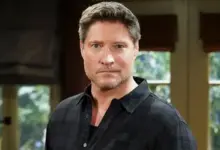‘The Karate Kid’ Review: How Watching ‘Cobra Kai’ Gave Me the Courage to Watch Original Movie
Wax on, wax off.

Whenever I watch a movie involving an Asian character set anytime before the 2000s, I get a little worried. It’s been a long road for Asian representation in media and entertainment, but sometimes looking into the past can be painful. Beloved movies like Sixteen Candles and Breakfast at Tiffany’s leave me with a sour taste in my mouth, not because I couldn’t understand Sam’s very American girl struggles as a teenager or because I wasn’t enchanted by Holly Golightly’s eccentricities, but because those movies contained caricatures of people who look like me. They turned Asian faces into the butt of the joke. This was always my fear and why I avoided The Karate Kid. The idea of a wise and experienced Japanese man teaching karate to a white kid from New Jersey was something I instantly thought: Nope, I’ll pass on that slice of nostalgia.
I don’t think I was being fair, considering I’d never actually seen the movie. But I was tired of feeling angry and a little ashamed when I saw those representations, and I didn’t want to be disappointed, yet again.
‘Cobra Kai’ Turned Things Around For Me

But, then, I started watching Cobra Kai. Partly because my job is to stay informed about popular shows, but also because I was curious. The series started out in YouTube Red before getting acquired by Netflix, and it had the original cast members from the movies, and seemed to be well-loved by the masses. On top of that, I didn’t think I’d be stumbling on any racism or racist sentiments from a series created in 2018. So I started watching it.
And it’s fair to say I was immediately charmed by the characters of the series. From Ralph Macchio’s Daniel LaRusso to William Zabka’s Johnny Lawrence, two characters I was familiar with only through pop culture osmosis, to the new kids on the block like Xolo Maridueña’s Miguel Diaz, Tanner Buchanan’s Robby Keene, and Mary Mouser’s Samantha LaRusso.
The show, thankfully, filled in some gaps in my knowledge when it came to what happened in the movies. But, playing those flashbacks of the movie made me realize that the movie didn’t actually seem as bad as I imagined. Mr. Miyagi, played by Pat Morita, did have a strong Japanese accent, but his words were impactful, and he was respected by Daniel, never the character we laughed at. He didn’t seem to be the butt of any joke and often stood in as a loving father figure and protector for our protagonist. So after binge-watching the series on Netflix and talking about it at work, I decided to give The Karate Kid a shot.
Mr. Miyagi Was the Stand-Out Character

It was surprising what stood out to me from the perspective of a person who had seen all of Cobra Kai. Scenes With Daniel and Ali (Elisabeth Shue) felt like filler, it was cute but ultimately of no consequence. Meanwhile, the heart of the movie was really about Daniel and Mr. Miyagi. Even Johnny, who plays such a large role in the show, felt like a very small part of the movie.
Seeing Morita play Miyagi, I could see directly how Daniel was both influenced and inspired by him. His lessons went beyond just teaching karate, they were life lessons. Sometimes he was stern and serious, but then he was also warm and caring. He was a man who suffered greatly but still managed to be an honorable and decent man. My fears that Miyagi would fall into the stereotype of a model minority, meek and soft-spoken, were assuaged in the way he not only stands up for himself but also the way he defends Daniel.

The way the movie slowly develops the bond between Miyagi, a man who lost his wife and child, with Daniel, a kid who has no father, is immensely rewarding to watch. Macchio and Morita have great chemistry in their scenes together, with Miyagi slowly transforming from teacher to father figure. As Daniel learns more about Miyagi, finding out one night that Miyagi’s wife died in childbirth at the Manzanar internment camp while he was fighting in World War II in Europe, he begins to see his mentor differently.
These moments looking into Miyagi’s life not as a teacher or guide to Daniel, but as an Asian American man struggling with the trauma of the past and his own identity. This is a man who fought for a country that put American citizens into concentration camps and looked at them like the enemy, lost everything, and still managed to keep it together. He’s been othered, he’s spent his life grieving, and he sees in Daniel the son he never had. It’s amazing that all of that translates amidst a movie that, on the surface, is just about a kid moving to a new city and dealing with girls and bullies.
‘The Karate Kid’ Sets Up a Whole Franchise of Strong Storytelling

I say all this not because this was the only thing that stood out to me in the movie, but because those were the scenes that ultimately won me over. I obviously loved the music and the karate scenes, especially the finale at the All-Valley Tournament. But also knowing where the path would end, thanks to Cobra Kai, made me less cautious about exploring the journey that led up to it. Knowing that an older Daniel inherits Miyagi’s view of life and teaching style and still honors it, and knowing that his family see him as a part of the family, with Miyagi even knowing a baby Sam, gave me the comfort that I struggled to find elsewhere.
Watching the show first offered unexpected insight. Starting with Cobra Kai, it was pretty easy to have sympathy for Johnny, who, as an adult, is washed up, kind of pathetic, trapped in the past, and just trying to make it through day by day. Finding out that his actions at the All-Valley ultimately ruined his life makes the scene where we see him sweep the leg in The Karate Kid that much more tragic. Going into the movie without that knowledge, Johnny seems to just be a bully with some serious issues. He doesn’t actually have that many scenes where his character is being examined. Though the few scenes we get of him at the All-Valley shows the glimmer of the man he will become. Not really a bad person but misguided by a man who has also been broken by war.
The Karate Kid is ultimately a story meant to inspire, it’s an underdog tale. On its own, it’s entertaining and unconventional at times, but combined with the grander scheme of things and Cobra Kai, it sets up a dynasty of strong storytelling that is way more than just showing off cool karate moves.


